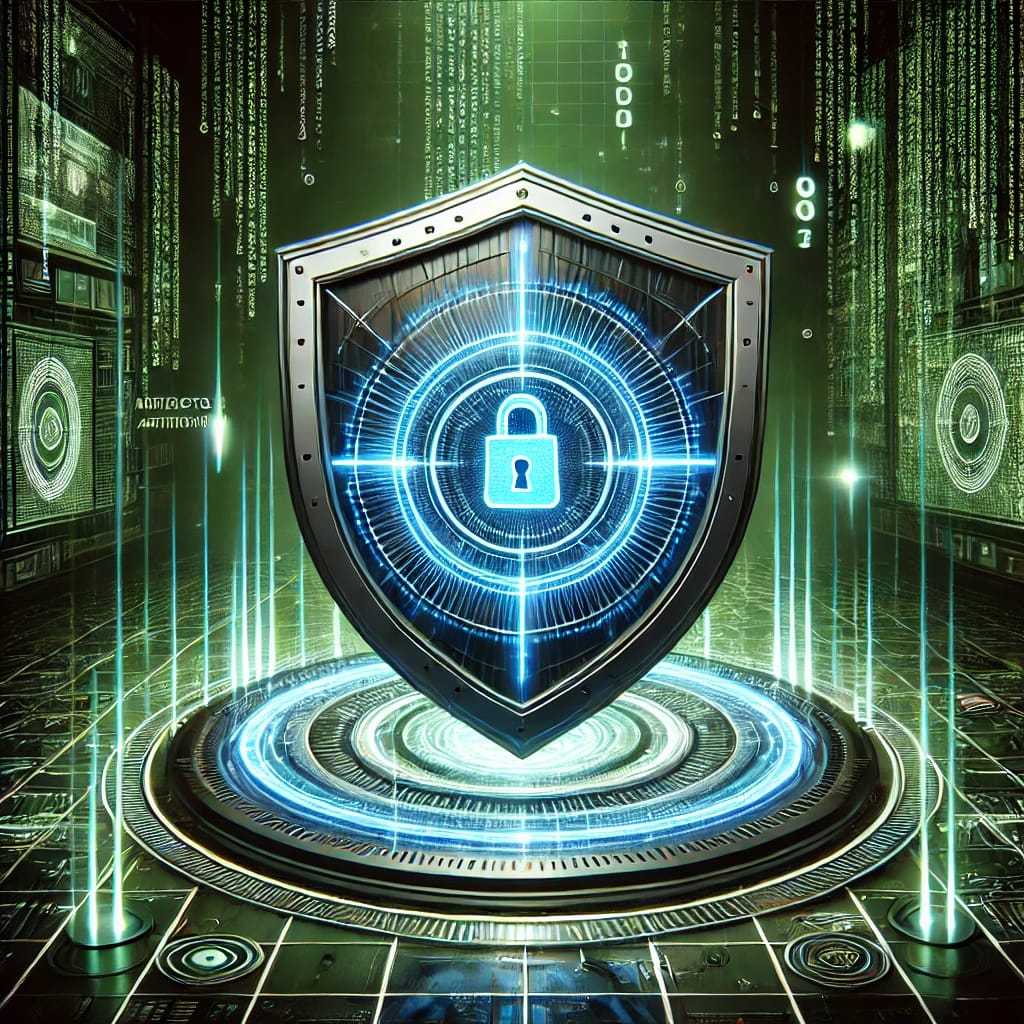As remote work continues to gain momentum in 2025, the cybersecurity industry is seeing a surge in demand for remote cybersecurity jobs. With increasing cyber threats and a growing need to protect digital assets, organizations worldwide are opening up new remote job opportunities. This blog will dive into the world of remote cybersecurity jobs, explore the most in demand roles, and highlight the top skills you need to thrive in this field.
Why Remote Cybersecurity Jobs Are Booming in 2025

The rise of remote work is transforming industries globally, and cybersecurity is no exception. Here are some reasons why remote cybersecurity careers are thriving in 2025:
- Technology-Driven Industry: Since cybersecurity heavily relies on technology, many tasks like network monitoring, threat detection, and breach investigations can be performed from anywhere with a secure internet connection.
- Increase in Cyber Threats: As businesses move online, cyberattacks like phishing, ransomware, and data breaches are increasing. This has created an urgent need for cybersecurity professionals who can respond to these threats from remote locations.
- Flexible Work Environment: For cybersecurity experts, the ability to work from home provides a better work-life balance, increased job satisfaction, and productivity. This flexibility makes remote cybersecurity jobs even more attractive.
Top Remote Cybersecurity Jobs in 2025
If you’re looking to enter the cybersecurity industry or switch to a remote cybersecurity role, here are the top jobs you should consider in 2025:
1. Remote Cybersecurity Analyst
A cybersecurity analyst is one of the most sought-after roles in 2025. In this job, you’ll be responsible for monitoring an organization’s systems and networks for security threats, identifying vulnerabilities, and taking proactive measures to protect digital assets.
Key Skills for Cybersecurity Analysts:
- Threat detection and incident response
- Experience with SIEM tools (Security Information and Event Management)
- Understanding of network security principles
2. Remote Penetration Tester (Ethical Hacker)
Penetration testers, also known as ethical hackers, play a critical role in identifying vulnerabilities in a company’s security system. They simulate real-world cyberattacks to uncover weaknesses before malicious hackers can exploit them.
Key Skills for Penetration Testers:
- Knowledge of ethical hacking techniques
- Proficiency in programming languages like Python or JavaScript
- Familiarity with tools like Metasploit and Burp Suite
3. Remote Incident Responder
An incident responder is responsible for managing cybersecurity incidents such as data breaches or malware attacks. As a remote incident responder, your primary task is to contain and mitigate the effects of the attack while working with IT teams to prevent future incidents.
Key Skills for Incident Responders:
- Forensic analysis and malware detection
- Expertise in handling security breaches
- Strong communication and decision-making under pressure
4. Remote Security Consultant
A security consultant advises businesses on how to enhance their cybersecurity strategies. You’ll assess risks, recommend security solutions, and ensure that an organization’s security policies are up-to-date.
Key Skills for Security Consultants:
- Risk management and policy development
- Expertise in compliance standards (e.g., GDPR, HIPAA)
- Strong interpersonal and consulting skills
5. Remote Cloud Security Engineer
With more companies migrating to the cloud, cloud security engineers are highly in demand. In this role, you’ll design, implement, and monitor security measures to protect cloud-based systems from potential threats.
Key Skills for Cloud Security Engineers:
- Hands-on experience with cloud platforms like AWS, Azure, or GCP
- Knowledge of cloud security best practices
- Familiarity with encryption and access management
Essential Skills for Remote Cybersecurity Jobs in 2025

Landing a Remote Cybersecurity Jobs requires a mix of technical skills and personal attributes to navigate the challenges of working from home. Here are the key skills you’ll need in 2025:
1. Technical Proficiency
In the fast-paced world of cybersecurity, technical expertise is critical. You need to be well-versed in:
- Network security principles
- Firewall and encryption technologies
- Vulnerability assessment and penetration testing
- Familiarity with cybersecurity tools like Wireshark, Nessus, and Splunk
2. Self-Motivation and Time Management
Working in a Remote Cybersecurity Jobs role requires strong self-discipline. You’ll need to manage your time effectively, set clear priorities, and meet deadlines without direct supervision. Being able to stay focused in a home environment is essential.
3. Communication Skills
Effective communication is vital when working remotely. You need to clearly communicate with team members, managers, and clients. In cybersecurity, this includes explaining complex technical issues in a way that non-technical staff can understand.
4. Problem-Solving Skills
Cybersecurity professionals are problem solvers by nature. Whether you’re dealing with a potential breach or figuring out how to improve a system’s security, you need to approach problems analytically and devise creative solutions.
5. Adaptability
Cyber threats evolve rapidly, and so must you. Staying ahead of the curve with the latest cybersecurity trends, tools, and certifications is vital for continued success in a remote cybersecurity career.
How to Get Started in Remote Cybersecurity
Transitioning into a Remote Cybersecurity Jobs career in 2025 might seem daunting, but with the right approach, you can land a role that matches your skills and interests.
1. Get Certified
Obtaining recognized certifications is a key way to build your credibility. Some top certifications for remote cybersecurity jobs in 2025 include:
- Certified Information Systems Security Professional (CISSP)
- Certified Ethical Hacker (CEH)
- CompTIA Security+
- Certified Cloud Security Professional (CCSP)
These certifications will enhance your technical knowledge and open doors to higher-paying jobs.
2. Build Experience
Gaining hands-on experience is crucial in cybersecurity. You can start by working on freelance projects, internships, or online security challenges on platforms like Hack The Box or TryHackMe. These projects can help you develop practical skills while working remotely.
3. Network with Other Cybersecurity Professionals
Joining online communities of cybersecurity professionals can help you stay updated on industry news and job openings. LinkedIn groups, cybersecurity forums, and webinars are excellent networking opportunities.
Future Trends in Remote Cybersecurity Jobs

The world of cybersecurity is evolving, and so are remote cybersecurity jobs. Here are some trends to watch out for in 2025:
- AI and Automation in Cybersecurity: Artificial intelligence (AI) will play a key role in threat detection and response, making it essential for professionals to develop skills in AI-driven security tools.
- Increased Demand for Cloud Security Experts: As businesses continue to adopt cloud services, the demand for cloud security engineers will increase. More remote positions will focus on securing cloud infrastructures.
- Growth of Managed Security Service Providers (MSSPs): With the complexity of cyber threats, more companies are turning to MSSPs for remote monitoring and management. This will create more opportunities for cybersecurity experts to work in remote roles.
- Focus on Zero Trust Security Models: In 2025, organizations will increasingly adopt Zero Trust security frameworks. Professionals with expertise in Zero Trust architecture will be highly sought after.
Frequently Asked Question’s
Can you work remotely in cybersecurity?
Yes, remote work in cybersecurity is not only possible but increasingly common. Many cybersecurity roles, such as analysts, penetration testers, and incident responders, can be performed remotely due to the digital nature of the work. As long as you have a secure internet connection and the right tools, you can work from anywhere.
What are the best remote cybersecurity jobs in 2025?
Some of the best remote cybersecurity jobs in 2025 include:
- Cybersecurity Analyst
- Penetration Tester (Ethical Hacker)
- Incident Responder
- Cloud Security Engineer
- Security Consultant These roles are in high demand due to the growing threat landscape and increased reliance on digital infrastructures.
What skills do I need for remote cybersecurity jobs?
Key skills for remote cybersecurity jobs in 2025 include:
- Technical expertise in network security, encryption, and threat detection
- Proficiency in cybersecurity tools like Wireshark, Nessus, and Splunk
- Strong problem-solving and analytical skills
- Knowledge of cloud security and AI-driven security tools
- Excellent communication and time management skills
- Certifications like CISSP, CEH, and CompTIA Security+
Do I need certifications to work remotely in cybersecurity?
While certifications are not mandatory, they significantly boost your chances of landing a remote cybersecurity job. Some of the top certifications for 2025 include:
- Certified Information Systems Security Professional (CISSP)
- Certified Ethical Hacker (CEH)
- CompTIA Security+
- Certified Cloud Security Professional (CCSP) These certifications demonstrate your expertise and make you more competitive in the job market.
What is the salary for remote cybersecurity jobs?
Salaries for remote cybersecurity jobs can vary based on the role, experience, and location. On average, cybersecurity professionals earn between $70,000 to $150,000 annually, with some roles like penetration testers and cloud security engineers commanding higher salaries.
How can I get started in remote cybersecurity?
To get started in remote cybersecurity:
- Learn the basics: Start with foundational knowledge in IT and cybersecurity.
- Get certified: Earning certifications like CompTIA Security+ or CEH can open doors.
- Build experience: Try freelance projects or internships to gain hands-on experience.
- Stay updated: Follow cybersecurity trends, join online communities, and network with professionals.
Will demand for remote cybersecurity jobs continue to grow in 2025?
Yes, demand for remote cybersecurity professionals is expected to continue growing in 2025. With the rise of cyber threats, digital transformation, and remote work, organizations will need skilled cybersecurity experts to protect their digital assets.
Conclusion
Remote Cybersecurity Jobs is not just possible; it’s a thriving field with exciting opportunities in 2025. Whether you’re a cybersecurity analyst, penetration tester, or cloud security engineer, the demand for remote cybersecurity professionals is only going to increase.
By developing the right skills, earning certifications, and staying up-to-date with industry trends, you can secure a successful and rewarding remote cybersecurity career. The future is digital, and you can be at the forefront of protecting it from wherever you choose to work.



Thank you for this amazing post! The way you break things down makes it easy for anyone to grasp the key takeaways. Looking forward to more valuable content from you!
Thanks 🙏
Another fantastic piece of content! Your insights are always spot on, and I love how you make complex topics easy to understand. Keep up the great work!
Thanks 🙏
This is really interesting, You’re a very skilled blogger. I’ve joined your feed and look forward to seeking more of your magnificent post. Also, I’ve shared your site in my social networks!
Thank you so much, Myles! Your kind words mean a lot to me. I’m glad you enjoyed my blog and decided to follow. I truly appreciate your support and for sharing my site! I hope you continue to find my content valuable. Feel free to share any feedback or ideas. ☺️
Your content is always so informative and well-structured. This post, in particular, was a great read, and I learned a lot from it. Thanks for sharing your knowledge!
Thanks 🙏
What a fantastic read! The way you articulated each point made it so engaging. I’m excited to see what you post next!
Thanks 🙏